Annual report to stakeholders, 2024
BECAUSE EVERYONE DESERVES A GOOD JUDGE




Annual report to stakeholders, 2024



After celebrating our 60th anniversary in 2023, we entered 2024 with a renewed sense of purpose. The turbulence of high-profile trials, litigation, and political races throughout the year only reinforced a simple truth we hold dear—one that is proudly displayed on t-shirts worn by NJC staff every Tuesday:
Because Everyone Deserves a Good Judge.
This is more than a slogan. It is our “why.”
Whether the case involves a well-resourced defendant or a young person just beginning their life; a multinational corporation or a small business— each person who comes before a court deserves a judge who is fair, knowledgeable, impartial, independent, and courageous.
In 2024, as judges continued to be scrutinized and even attacked for simply doing their jobs, we spent considerable time reflecting on what makes a good judge. The characteristics are timeless, yet the demands placed on judges are evolving. In an era of division and distrust, judicial courage has become just as vital as competence and impartiality.
Throughout this report, you will see quotes from jurists, scholars, and public servants offering their definitions of what it means to be a good judge. We invite you to reflect on these perspectives and, perhaps, arrive at your own.
The daily work of a judge is demanding and often thankless. But it is also essential to the health of our Constitutional democracy. Judges do more than “call balls and strikes.” They are often the final arbiters of whether the acts of government—federal, state, or local—uphold the principles enshrined in the Constitution. Judges are the quiet guardians of liberty, fairness, and the rule of law.
At the NJC, we serve judges from every jurisdiction—red states, blue states, and swing states. We believe that in the courtroom, judicial robes are black and judicial minds are neutral. It is a place where politics recede, and the law prevails.
We remain committed to equipping judges not only with deep legal knowledge but also with the practical skills and emotional intelligence to navigate today’s most difficult courtroom moments. We understand the personal toll of public service, and we are here to support, strengthen, and stand beside each judge who walks through our doors.
At The National Judicial College, we are unwavering in our belief that
Every judge in every courtroom deserves support—because everyone deserves a good judge.

Hon. Benes Z. Aldana (Ret.) President & CEO


Robert Hunter, Esq. Board of Trustee Chair
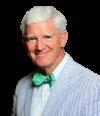
A judge should be faithful to, and maintain professional competence in, the law and should not be swayed by partisan interests, public clamor, or fear of criticism.”
—Canon
3(A)(1), Code of Conduct for United States Judges

At its heart, The NJC provides relevant, timely, thorough judicial education to judges while creating mentors and friendships in a profession that can be isolating. In 2024, The NJC surpassed 12,000 enrollments across 190 programs, marking an increase of more than 1,000 participants compared to 2023. Tuition enrollments for in-person courses reached its highest enrollment since 2019.
Course evaluations averaged 6.6 out of 7.0, exceeding the goal set in the strategic plan. Several courses received perfect scores, including When Justice Fails, The Judicial Academy, and the FMCSA-funded Human Trafficking Judicial Leadership Program. Additionally, our flagship General Jurisdiction course in the fall achieved what we believe to be its highest score ever.
A total of 310 faculty members taught for The NJC in 2024, with 93 percent volunteering their time. Faculty contributed over 1,900 hours of teaching, in addition to many more hours dedicated to preparation and travel.
The NJC continued to offer courses in a variety of formats, including in-person courses, multi-week virtual courses, multi-day virtual courses, short webinars, and self-study courses. The most popular tuition-based webinar, Dealing with Sovereign Citizens, attracted nearly 200 attendees, reflecting its timely relevance.
In 2024, The NJC educated judges from all 50 states and nine countries. The most enrollments across all types of courses came from:

12,000+ enrollments
190 courses
310 faculty
1,900 teaching hours
50 states, plus D.C.





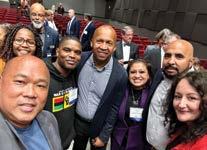
“

If you’re going to be a good and faithful judge, you have to resign yourself to the fact that you’re not always going to like the conclusions you reach. If you like them all the time, you’re probably doing something wrong.”
—Justice Antonin Scalia

“ Four things belong to a judge: To hear courteously; to answer wisely; to consider soberly; and to decide impartially.”
—Socrates

Good judges are...
Every year The NJC reviews its course offerings, talks to judicial leaders and class participants, and analyzes legal trends to ensure it is offering the latest, most important courses available. In 2024, The NJC offered four new courses:
Judicial Executive Leadership by Harvard Law School Executive Education. The NJC partnered with Harvard to design a special leadership course tailored to judges. Attendees traveled to Cambridge where they were immersed in three days of intense
learning about leadership styles, conflict management, ethics, crisis communication, and personal development. After strong early enrollment, the class size was doubled, but still sold out.
When asked about the biggest takeaway from the course, one participant wrote: “Leadership takes guts and creativity. It’s not all barking orders.” Another participant wrote: “The course was jam packed with useful and practical information that is highly relevant to our leadership roles as judges. The speakers were all dynamic and
extremely knowledgeable.”
Court Administration Academy. This new course set out to assist presiding judges, court administrators and other judicial leaders to manage the business side of the court’s work. Sessions focused on caseflow and docket management; access to justice; working with state legislatures; crisis management; data capture, security and use; court security; jury management; human resources; and fiscal responsibilities.
“This course was outstanding. The

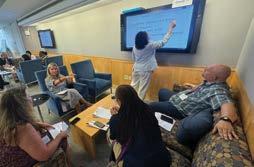
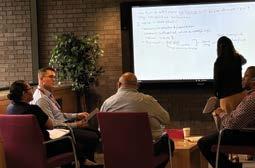

faculty was absolutely incredible!,” one participant wrote. “ I don’t know how NJC was able to accomplish engaging this group of superstars, every single one of them. The level of expertise and engagement was outstanding. The agenda was so carefully curated it covered all of my needs. This is my first NJC course, and I will take more based on this experience.”
Artificial Intelligence for All Judges & Lawyers: A Comprehensive Course. The NJC partnered with the Thomas R. Kline School of Law and Kline Center for Judicial Education at Duquesne University in Pittsburgh to present the largest in-person course of the year, which received rave reviews. Presenters tackled using AI in legal research, deep fakes, expanding
access to justice through AI, national security issues, legal writing uses, judicial ethics, hallucinations and even some hands-on coding and prompt writing.
Election Challenges & Disputes:
Ruling Fairly and Ethically. While the 2024 Presidential Election was obviously big news, especially in “battleground” states, judges are often called on to navigate election disputes in elections of all sizes, including in ballot initiatives, local races and bond levies. Judges learned how to manage these often fast-paced cases, utilize expert opinion evidence, work with election officials and manage the media in high-profile cases.
Georgia Secretary of State Brad
Raffensperger joined the course for a discussion as well as judges from Pennsylvania, Minnesota and the president-elect of the National Association of Secretaries of State.
After the course was completed, faculty lead Judge Edward Wahl of Minnesota took the initiative to develop a bench book that was downloaded by hundreds of judges prior to Election Day. Judge Wahl also led in the creation of two ondemand webinars related to election law cases.

—Micah 6:8 “
He has shown you, O mortal, what is good. And what does the Lord require of you? To act justly and to love mercy and to walk humbly with your God.”

“
A good judge embodies wisdom, fairness, and patience, ensuring that each case is decided with impartiality and a deep understanding of the law. They balance compassion with firmness, maintain professionalism under pressure, and treat all parties with respect, fostering confidence in the judicial system.”
—Judge John Molaison, Louisiana, NJC Faculty


Good judges are...
In 2024, more than 300 faculty taught at The National Judicial College. Professor Elizabeth Francis, who helped found the field of judicial writing, is the longest serving faculty member, having taught for 47 years at The NJC.
Several long-standing faculty members celebrated milestones and retirements this year:
• Former Justice and Professor Penny White (Tennessee) was presented with a plaque honoring her 30 years of teaching for the NJC. She was the 2009 Payant Award winner and has taught General Jurisdiction, Advanced Evidence, Fundamentals of Evidence and Managing Capital Cases since 1993.
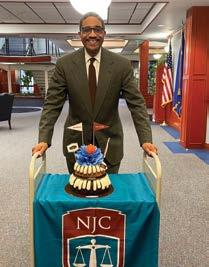

• Former Justice Michael Morgan (North Carolina) celebrated his retirement from The NJC after 30


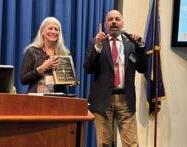
years of teaching. Justice Morgan received the Payant Award in 2014. He began teaching Administrative Law in 1993. He was the first faculty member who was bestowed with the “Faculty Member Emeritus” award by the Faculty Council.
• Former Dean Linda Ammons (Delaware/Nevada) celebrated 30 years on the faculty. She teaches all topics related to Administrative Law. She was elected to the Board of Trustees to serve beginning in 2025. She will have to take a hiatus from teaching while serving on the Board.
• Judge Jennifer Gee (California) celebrated 30 years on the faculty. She teaches Administrative Law. She won the 2018 Payant Award.
• Judge Don Ash (Tennessee) retired from the faculty after 22 years of service. Over that time, he taught more than 50 courses
Judge Efrain Alvarado (New York) received the 2024 Payant Award for Faculty Excellence. This award was instituted to recognize the NJC’s faculty for their outstanding contributions and teaching excellence. Judge Alvarado began teaching for NJC in 1999 and has taught in 70 different courses, including Special Court Jurisdiction, Advanced Concepts in Criminal Justice, Fourth Amendment and more.
Judge Alvarado recently retired as a justice of the Bronx County Supreme Court in New York. He began his career in 1976 as a chief assistant district attorney in

for the NJC. Judge Ash earned his Master of Judicial Studies in 2000 and was chair of Faculty Council in 2015. He and his wife created a scholarship endowment to help other judges from Tennessee attend NJC courses.
• Judge David Suntag (Vermont) commemorated 20 years of teaching for the college. He was the 2020 recipient of the Payant Award for teaching excellence.
Bronx County. He served as the chief of the Narcotics Bureau from 1985 to 1987. He was appointed to the New York City Criminal Court in 1988. He was reappointed to this court in 1991 and 2001, serving there until 2010. Since 1994, he has served as an acting Supreme Court Justice and, from 2009 to 2013, he was an administrative judge in the 12th Judicial District

A good judge must be ethical, have a keen sense of fairness, integrity, compassion and strength. A sense of duty to one’s community and constituents is also required.”
—Judge Barbara Seelbach, New York, NJC Faculty “


“Good judges are...
An excellent judge is someone who is patient, an active listener, cares about people, and recognizes that he or she is there to serve the public – not the other way around. An excellent judge understands that despite the perceived value of the dispute, it may be the most important thing in the lives of the people appearing before them.”
—Commissioner Peter W. Singer, California, NJC Course Attendee

The American Bar Association Judicial Division awarded The National Judicial College the 2024 ABA Justice and Rule of Law Award.
The award recognizes individuals and organizations that make a national impact on the justice system and preserving the rule of law in the categories of judicial independence, justice system reform, or public awareness of the justice system. Past recipients include former U.S. Supreme Court Justices Anthony Kennedy and Sandra Day O’Connor, 10 state court judges and justices, a governor, and a U.S. senator. The NJC is the first organization to win the award.
“We are deeply honored to receive the 2024 ABA Justice and Rule of Law Award,” President Benes Z. Aldana said. “This recognition not only reflects the hard work and dedication of our faculty, staff and trustees but also strengthens our resolve to continue promoting the independence and impartiality of the judiciary, which we regard as our top strategic priority and an essential
ingredient of our democracy.”
The College has a long history of promoting judicial independence and the rule of law.
In 2022, the College, in partnership with the International Academy of Trial Lawyers, launched a biannual national symposium, “Democracy’s Last Line of Defense,” which brought together judges, lawyers, academics, and the media to examine growing threats to the independence and impartiality of courts in the United States and other democracies, and how to counter the threats. In 2018, as a precursor to “Democracy’s Last Line of Defense,” the NJC presented a day-long program “Undermining the Courts and the Media: The Consequences for American Democracy” at the National Press Club.
The College’s When Justice Fails: Threats to the Independence of the Judiciary course examines periods in history, like during the Holocaust, when justice was corrupted. The

course asks today’s judges to put themselves in their predecessors’ shoes and think about what they might have done differently to keep the promise of equal justice. The class was held in Montgomery, Alabama, in 2022 focused on civil rights and, other programs focused on the incarceration of Japanese Americans during World War II.
“At the National Judicial College, we believe in the power of education to foster judicial excellence and integrity across the globe,” Rob Hunter, NJC Board of Trustees chair, said. “This award inspires us to continue our mission of equipping judges with
the knowledge and skills necessary to ensure fair, independent, and effective judiciaries everywhere.”
In 2023, the College celebrated its 60th Anniversary with the theme Justice for All and sponsored programs highlighting the importance of judicial education as a core component of ensuring fair and equitable courts, on “Being Heard and Ensuring Fairness,”
and on “Justice for All – Healing and Restoring Our Community.” In total, the College held six events in six cities, engaging judges, lawyers, and community leaders on the importance of the rule of law.
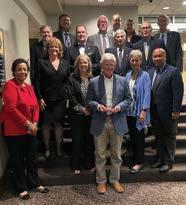
NJC President & CEO Benes Z. Aldana received the American Bar Association’s Spirit of Excellence Award during the ABA’s midyear meeting.
“Receiving this award today is not just an honor; it’s a call to action,” he said. “In these challenging times, when the rule of law and the ideals of justice are under threat, this recognition strengthens my resolve to stand up and speak out. We must defend the principles of equality and justice and inspire our leaders to uphold the ideals that founded this nation.”
During his tenure, the NJC has launched a first-of-its kind Judicial Academy for lawyers who aspire to become judges as well as new courses on artificial intelligence, climate science, and other emerging topics. An annual Judicial Renaissance course, presented abroad, brings together judges from
around the globe for wide-ranging study of the origins of law and justice.
Prior to joining the college, President Aldana had a distinguished 22-year career in the U.S. Coast Guard. He retired with the rank of captain. Nominated by the Secretary of Homeland Security and appointed by the Secretary of Defense, he currently serves on the Military Justice Review Panel, a group established by Congress to conduct independent periodic reviews and assessments of the operation of the Uniform Code of Military Justice.
In the aftermath of 9/11, President Aldana was deployed as a legal adviser to the Department of Defense Criminal Investigation Task Force in Guantanamo Bay, Cuba. The Task Force conducted criminal investigations of suspected terrorists detained by U.S. forces.
—Atticus Finch, To Kill A Mockingbird “
Our courts have our faults, as does any human institution, but in this country our courts are the great levelers, and in our courts all men are created equal.”
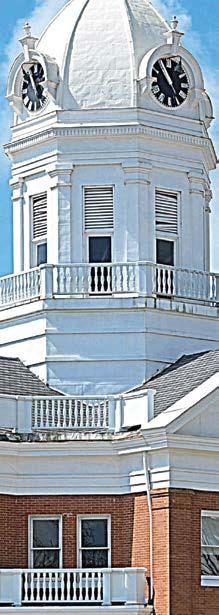

“ It is the right of every citizen to be tried by judges as free, impartial and independent as the lot of humanity will admit.”
—Massachusetts Constitution, written by John Adams

Good judges are...
Retired Massachusetts Chief
Justice Margaret H. Marshall was selected as the 2024 winner of the prestigious Sandra Day O’Connor Award, the highest honor bestowed by The National Judicial College. Throughout her tenure, she not only advocated for judicial independence and the rule of law but also implemented multiple innovative solutions to enhance court operations.
The award was presented during the opening reception of the Appellate Judges Education Institute Summit.
“I am overwhelmed by this honor,” Chief Justice Marshall said. “I had the great privilege to know Justice O’Connor. She was, and remains, one of my judicial models. She was a great patriot, an outstanding jurist, and an exemplary public servant — before, during and after her tenure on our Nation’s highest court.”

A legacy of innovation Appointed to the Massachusetts Supreme Judicial Court in 1996 and becoming its first female Chief Justice in 1999, Chief Justice Marshall has
often been quoted referencing John Adams and the Massachusetts Declaration of Independence, emphasizing the right “to be tried by judges as free, impartial, and independent as the lot of humanity will admit.” Her initiatives to modernize the administration of the trial courts introduced accountability, transparency, and data-driven strategies that significantly reduced case backlogs and improved operational efficiencies across both trial and appellate courts.

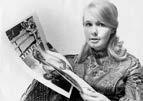
Court was among the first in the nation to livestream oral arguments.
Chief Justice Marshall also bolstered judicial evaluation, education, and mentoring as well as enhanced access to justice by providing support for self-represented litigants and modernizing court facilities to ensure accessibility and public education. Notably, under her leadership, the Massachusetts Supreme Judicial
A unique perspective on the rule of law and judicial independence
Originally from South Africa, Chief Justice Marshall bore witness to the injustices of apartheid. While the church she was raised in was devoted to ending apartheid and she learned much about the cause, it was not
until she was a high school exchange student in the United States during the height of the Civil Rights Movement that she began to fully comprehend the issue.
“I tasted freedom for the first time when I came to the United States,” Chief Justice Marshall said. “We did not have television in South Africa. I read books here that I could not read there, including Cry, Thy Beloved Country, which is about South Africa, but banned there.”
Upon returning to South Africa for college, Chief Justice Marshall was elected president of the National Union of South African Students, at the time a leading anti-apartheid organization. Her predecessors were arrested, thrown out of the country, or banned, a type of house arrest. Knowing her political activities left her vulnerable, she returned to the United States to pursue her master’s degree at Harvard University.
“I had not planned to attend law school. The very idea of being a lawyer had not entered my mind: in South Africa law was an instrument of
oppression, the rule of law was a rule of the powerful. Nothing attracted me to the legal profession,” she said.
“I came to understand the law plays a unique role in this nation. I saw lawyers bring cases that gave meaning to the words of Dr. Martin Luther King and Senator Robert Kennedy that had so moved me. I understood that law need not be an instrument of dehumanization. Law could be a means to freedom, equality and justice for all.”
She earned a law degree from Yale University and became a United States citizen in 1978. She began her legal career in private practice in Boston and served as president of the Boston Bar Association.
Throughout her career, Chief Justice Marshall has advocated strongly for the rule of law and judicial independence.
“Our courts enforce our written Constitution and they are critical to a living democracy,” she said. “Many Americans do not know — or are not taught — that the United States Constitution embodies an entirely
unique and brilliant structure of government. For so long no other country had what we have, which is a written charter of rights for each person that our government cannot take away. A written bill of enforceable rights was unique in the United States from 1787 until 1948, when Germany adopted its charter after the second world war. The ability of judges to be impartial in their judgments, and to be independent of political and popular pressure is essential of our Constitutional Democracy.”
Previous winners of the Sandra Day O’Connor Award include retired Judge Bernice Donald of the United States Court of Appeals for the Sixth Circuit, Senior U.S. District Court Judge Rya Zobel, who serves on the United States District Court for the District of Massachusetts, and the late Justice Sandra Day O’Connor herself.
The following organizations supported this year’s Sandra Day O’Connor Award reception: Choate, Ivan & Sharon Fong, Fish & Richardson, Paul Weiss, the Massachusetts Judges Conference, and the Boston Bar.

“ The greatest threat to our democracy is not terror. It is indifference. Indifference to attacks on the rule of law, indifference to attacks on judges who make decisions that may be unpopular, indifference to those who work to make the judicial branch an instrument of the political branches.”
—Former Massachusetts Chief Justice Margaret Marshall

“ Treat people with respect. Be prepared. Be timely. Listen. Recognize that you are not the most important person in the team and to treat staff with respect.”
—Judge Anna Marie Anzalone, Michigan, NJC Course Attendee

The National Judicial College and the International Academy of Trial Lawyers gathered major figures from the legal, judicial, political, academic and media worlds in Boston to discuss growing threats to the independence and impartiality of courts in the United States and other democracies, and how to counter the threats during the Democracy’s Last Line of Defense: Preserving An Independent Judiciary symposium. This was the second Democracy’s Last Line of Defense symposium, the first taking place in 2022.
Session topics included:
• The Essential Role of a Free and Independent Media;
• Artificial Intelligence: Resource or Threat to Democracy?;

• The Judiciary and the Bar: Reviving the Bar’s Critical Role in Preserving the Independence of the Judiciary; and
• Championing the Rule of Law: The Role of State Constitutions.
Sponsors included:
• Robins Kaplan LLP
• World Justice Project
• Edwards Law Firm
• Quarles
• Flaschner Judicial Institute
• Resolute Dispute Resolution Nationwide
• Signature Resolution
• Boston Bar
• Massachusetts Bar Association
With additional support from:
• Berkeley Law Berkeley Judicial Institute

Above: Pat Murphy, William J. Murphy, Dennis J. Maggi, Roman Silberfeld. Right: Karen Burgess, Chief Justice Paul L. Reiber, Anna Mercado Clark, Anthony A. Froio
• Berkeley Law Civil Justice Research Institute
• Hon. Bernice Donald (Ret.)
• Northwest Indian Bar Association
• MCLE New England
• National Asian Pacific American Bar Association
• National Bar Association

• The Judicial Council, National Bar Association
• National Native American Bar Association
• Lawyers Defending American Democracy
• Massachusetts Judges Conference
• Prof. Akhil Reed Amar, Yale Law School
• K aren C. Burgess, Esq., Burgess Law PC, President-Elect, International Academy of Trial Lawyers
• Rachelle G. Cohen, Assistant Editorial Page Editor, The Boston Globe
• Jack Cushman, Esq., Director, Harvard Library Innovation Lab
• Anthony A. Froio, Esq., Regional Managing Partner, Robins Kaplan LLP
• Hon. Mark V. Green, Chief Justice, Massachusetts Appeals Court
• Hon. Michael G. Heavican, Chief Justice, Supreme Court of Nebraska
• Hon. Geraldine Hines (Ret.), Massachusetts Supreme Judicial Court
• Anna Mercado Clark, Esq., Phillips Lytle, LLP, President, National Asian Pacific American Bar Association
“If you care about the rule of law in America, it either exists in state courts or it does not exist.”
—Judge Jeffrey Sutton, Chief Judge, United States Court of Appeals for the Sixth Circuit
• Makalika D. Naholowa’a, Executive Director, Native Hawaiian Legal Corp and President, National Native American Bar Association
• Hon. Edwina G. Richardson, Deputy Chief Administrative Judge, New York State Unified Court System
• Hon. Paul L. Reiber, Chief Justice, Vermont Supreme Court
• Hon. Fredric D. Rutberg (Ret.), President, Massachusetts Newspapers Publishers Association and President/ Publisher, The Berkshire Eagle
• Hon. Leigh I. Saufley, Dean, University of Maine School of Law
• Hon. Jeffrey S. Sutton, Chief Judge, U.S. Court of Appeals for the 6th Circuit
• Hon. Robert J. Torres, Chief Justice, Supreme Court of Guam
• Hon. David N. Wecht, Associate Justice, Pennsylvania Supreme Court
• Hon. Thomas A. Zonay, Chief Judge, Vermont Superior Court
Remarks by:
• Hon. Benes Aldana (Ret.), President & CEO, The National Judicial College
• Elizabeth “Betsy” Andersen, Executive Director of the World Justice Project
• Hon. J. Michelle Childs, U.S. Court of Appeals for the District of Columbia Circuit, President, Federal Judges Association
• Roman Silberfeld, Esq., Partner, National Trial Chair, Robins Kaplan LLP
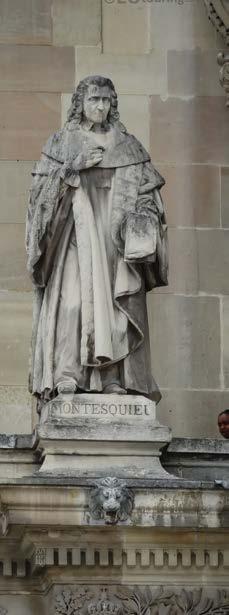
“ There is no liberty, if the power of judging be not separated from the legislative and executive powers.”
—Baron de Montesquieu, The Spirit of Laws

“ The best judges have a certain humility and they have a certain openness to learning. And they read and read and read.”
—Professor Akhil Reed Amar, Spring 2024 Jackson Lecture

Good judges are...
In April, Professor Akhil Amar, the Sterling Professor of Law & Political Science at Yale University, spoke on “Judicial Independence and Judicial Excellence.”
After graduating from Yale College, summa cum laude, in 1980, from Yale Law School in 1984, and clerking for then Judge (now Justice) Stephen Breyer, Professor Amar joined the Yale faculty in 1985 at the age of 26, and he has remained there ever since. He teaches constitutional law in both Yale College and Yale Law School.
His work has won awards from both the American Bar Association and the Federalist Society, and he has been cited by Supreme Court justices across the spectrum in more than 40 cases— tops in his generation and among all active scholars.

His most recent books include The Words that Made Us: America’s Constitutional Conversation, 1760-1840 (2021); The Constitution Today: Timeless Lessons for the Issues of Our Era (2016); and The Law of the Land: A Grand Tour of Our Constitutional Republic (2015).
He was a consultant to the television show The West Wing, and the character of Josh Lyman refers to him in an episode in Season 5.
Hon. Diane J. Humetewa, the first Native American woman and the first enrolled tribal member to serve as a U.S. federal judge, delivered the 145th Justice Jackson Lecture in October.
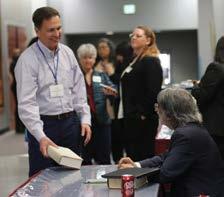
Judge Humetewa has served as a judge of the U.S. District Court for the District of Arizona since 2014. A member of the Hopi Tribe, she is considered a national expert on Native American legal issues and has instructed law enforcement and prosecutors on the topic.
The title of her Justice Jackson Lecture, which is presented twice each year during the College’s flagship General Jurisdiction course for newer trial judges, was, “Reposing the Public’s Special Trust and Confidence in Your Wisdom, Uprightness & Learning: A Discussion about Instilling and

Maintaining Confidence in Our Courts.”
Polling suggests that trust in and approval of the nation’s highest court, the Supreme Court of the United States, remains at or near historic lows. According to a Gallup poll taken in
2023, a near-record low of 43 percent of Americans said they approved of the way the court was handling its job; 52 percent disapproved. Only 30 percent of people have a great deal or quite a lot of confidence in the Supreme Court.
In the National Center for State Courts’ annual State of the State Courts poll for 2023, 61 percent said they have a great deal or some confidence in their state courts. But the largest voting block, 48 percent, believed that their state’s courts were doing “not well” or “not at all well” in providing equal justice to all. And a clear majority, 61 percent, said the term “political” described their state’s courts well or very well.
Prior to Judge Humetewa’s confirmation as a U.S. District Court judge, she served as special counsel to the president of Arizona State University. She was a litigator in the Arizona United States Attorney’s Office from 1996 to 2009, and in 2007 was confirmed as the U.S. attorney for the District of Arizona.
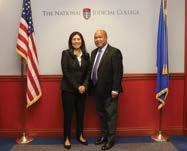
She currently serves on the Judicial Conference of the United States Committee on Federal-State Jurisdiction.
The Jackson Lectures are sponsored by Thomson Reuters. It is named for Justice Robert Houghwout Jackson, who served on the Supreme Court from 1941 to 1954. Justice Jackson
is best remembered for his wisdom, vigorous decisions, and for his role as America’s chief prosecutor in the Nuremberg War Trials. The decision to honor Justice Jackson with this lecture series was made by his friend and Supreme Court colleague Justice Tom C. Clark, one of the NJC’s founders.
Linda Greenhouse, a senior research scholar in law at Yale Law School, where she taught from 2009 to 2023, was the 4th Annual Ruth Bader Ginsburg Lecturer. For the previous thirty years, she was the Supreme Court correspondent for The New York Times and won a Pulitzer Prize in 1998 for her coverage of the Court.
“Ruth Bader Ginsburg had the imagination to envision a world different from the one she grew up in. The
ability to see beyond known borders is a gift shared by all pioneers, an essential element that drives profound change,” Greehouse said during the lecture.
Greenhouse is the author of six books, including Becoming Justice Blackmun, a biography of the Supreme Court Justice; The U.S. Supreme Court: A Very Short Introduction; and a memoir, Just a Journalist. Justice on the Brink: A Requiem for the Supreme Court was published by Random House in 2021. She has received 13 honorary degrees.
“

We hold the position not just based on education and learned experience, but through our uprightedness. Our ability to be decent to the parties that appear before us, honest in our application of the law and the facts presented, and moral in our conduct on and off the bench.”
—Hon. Diane J. Humetewa, Fall 2024 Jackson Lecture

“ Justice consists not in being neutral between right and wrong, but in finding out the right and upholding it, wherever found, against the wrong.”
—President Theodore Roosevelt
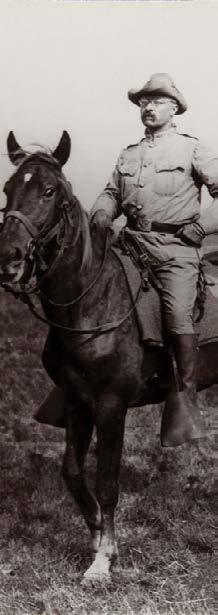
Capital cases are among the most challenging and draining a judge can oversee. In 2024, The NJC received two large grants from the Bureau of Justice Assistance to prepare state court judges to handle cases in which the death penalty is a possibility.
While The NJC has offered a course in Handling Capital Cases 35 times since 1976 with 1,097 judges completing it, these grants call for innovation as to the how, when and where materials are delivered.
Under the BJA grant, the College will deliver instruction via quarterly webinars, three offerings of a six-week online course, an updated bench book or reference publication (“Presiding Over the Capital Case”), a bench card, a clearinghouse of model orders, sample colloquies and checklists, and eight podcasts. The college will also tailor
four courses for delivery on site in states.
Subjects to be covered include relevant decisions by the Supreme Court of the United States, jury selection issues, managing the news media, mental issues (competency, insanity, intellectual disability), judicial ethics, racial justice, judicial wellness & vicarious trauma, writing the opinion, and post-conviction matters.
The Bureau of Justice Assistance is a component of the Office of Justice Programs within the federal Department of Justice. It provides leadership and assistance to local criminal justice programs designed to improve and reinforce the nation’s criminal justice system. Over the years the NJC has received more than $10 million in grants from the Bureau of Justice Assistance.
In 2024, the Conveners of the Dividing the Waters Program (DTW) decided to integrate the Program fully into The NJC organization.

The 2024 DTW annual conference was entitled: The Great Salt Lake: A Case Study of One of the West’s Emerging Conflicts Over the Use of Water. The Washington Administrative Office of the Courts
contracted with NJC for Washingtonfocused programming. DTW also produced four webinars on water issues and a state-specific water webinar for California. In 2025, DTW will convene at the University of Montana in late September to examine how historic water law doctrines are changing and drawing lessons from the Montana Water Court.
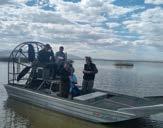
Established by NJC in 2019, the Reading & Robes™ program has been presented in 19 states and has reached more than 8,000 children. The community outreach event involves judges, wearing their robes, reading aloud to younger students from culturally diverse books with themes of justice, fairness and the law.
In September 2024, the Maryland judiciary presented the program to more than 720 students across the state. Funding for the event—totaling $18,406—was provided by the Maryland Bar Foundation, the ABA National Conference of Specialized Court Judges (in accordance with an MOU signed between NJC and
ABA JD in 2024), and the Montgomery County Bar Foundation. The grants were written and submitted by NJC staff.
In Nevada, an additional 650 students benefited from the program, with funding provided by a generous grant from the NV Energy Foundation.


As the population ages and judges retire, The NJC is dedicated to ensuring a new generation of judges is ready and prepared to serve. The Judicial Academy serves that mission and has evolved to meet the needs of aspiring judges. Our first four classes of students have seen 36 graduates take the bench in a diverse spectrum of jurisdictions ranging from Virginia to California to New Mexico and the Virgin Islands.
“The Judicial Academy was inspirational, motivating, and provided an invaluable foundation for those aspiring to serve on the bench,” one graduate wrote. “Graduates develop real skills that can be used on the bench day one of their judicial careers.”
In 2024, Hon. Marcine Anderson (Ret.) served as the new faculty lead, bringing a new perspective to the curriculum.

“ “To be kind, honest and have positive thoughts; to forgive those who harm us and treat everyone as a friend; to help those who are suffering and never to consider ourselves superior to anyone else: even if this advice seems rather simplistic, make the effort of seeing whether by following it you can find greater happiness.”
—Dalai Lama XIV


“
I think a good judge is measured and humble. A black robe does not impart wisdom; there will always be something I don’t know. Lastly, mindfulness and humility are key. I try to remind myself what it was like to appear before the court— as a newly minted lawyer and later as a more experienced litigator—and reflect on how the court as an institution will be perceived by the way I conduct myself.”
—Judge Benjamin J. Nevius, Pennsylvania, NJC Course Attendee

Good judges are...
The NJC houses a research team of four full-time employees dedicated to studying what impacts judicial behavior and decision making.
The team has recently published several key findings:
• Motivations, Barriers, and Impact of Continuing Judicial Education: A Survey of U.S. Judges, Court Review
• Judges and Forensic Science Education: A National Survey, Forensic Science International
• Judicial Survey of the Impacts of the COVID-19 Pandemic on Justice-Involved Individuals with Substance Use Disorders, Publication pending
• Perceptions and Experiences with Judicial Security Threats: A Survey of U.S. State Court Judges, Court Review
Over a dozen judicial leaders came to Reno in 2024 for the Human Trafficking Judicial Leadership Program, a four-day event that featured survivors, law enforcement, psychiatrists, and more. The group went through an empathy exercise that helped drive home the often “no win” choices human trafficking victims have to make throughout their ordeal. Participants can now help educate judges and others on the intricacies of human trafficking and how the courts may intervene.
NJC Judicial Fellow Judge Gayle Williams Byers (Ret.) teaching during the Human Trafficking Conference
• Exploring the Landscape of Alternative Sentencing: Awareness, Perceptions, and Informational Behaviors Among Teens and Adults in Diverse Professional Roles, Publication pending
• Perceptions, Training, and Integration of Artificial Intelligence among Judges, Publication pending

In 2024 The National Judicial College held cooperative agreements with the U.S. Department of Justice, Bureau of Justice Assistance. The NJC serves as a sub-recipient on U.S. Department of Justice cooperative agreements with the University of North Dakota School of Law Tribal Judicial Institute.
The NJC partnered with the U.S. Department of Transportation’s National Highway Traffic Safety Administration and the Federal Motor Carrier Safety Administration’s Commercial Driver’s License program to provide traffic safety education to judges.
The NJC also receives grants from the State Justice Institute, a nonprofit organization established by federal law in 1984 to award grants to improve the quality of justice in state courts, and to foster innovative, efficient solutions to common issues faced by all courts.
The NJC also serves as a sub-recipient on two U.S. Department of Health & Human Services, Substance Abuse and Mental Health Services Administration cooperative agreements awarded to the American Academy of Addiction Psychiatry. These are important collaborations between medical professionals and the legal system on the topic of opioids.











The administrative side of being a judge can have a huge impact on the administration of justice. To be a good and effective judge, it is important to play an active role in setting policies for the judiciary, monitor data related to the efficiency and outcomes of court proceedings, and meet regularly with justice stakeholders to make sure that the courts are running efficiently and fairly. Being a judge is about so much more than presiding over individual cases in your court.”
—Judge Genesis Draper, Texas, NJC Course Attendee


“Trust in the judiciary is a privilege that needs to be earned and safeguarded, and we must continue to prove on a daily basis that we are worthy of the trust that has been reposed in us.”
—Chief Justice Sundaresh Menon , Supreme Court of Singapore

Comparative law and international friendships help improve justice in the United States by providing a clearer understanding of what is right, as well as areas for improvements and updates, within our own system. For decades, international judges have come to The NJC to learn alongside their American counterparts and NJC faculty have traveled the globe to educate at judicial conferences on a variety of continents.
In 2024, The NJC attended the European Judicial Training Network. Judge David Gersten and NJC’s Director of the Institute for Ethics and Professionalism Keith Fisher presented on social media and AI as it relates to judicial ethics, NJC Faculty Council Chair Judge Phyllis Kotey spoke to wellness and mindfulness, and Chief Justice Bob Torres (Guam) concluded U.S. presentations with a thorough demonstration of ChatGPT.
NJC leadership traveled to Mongolia, where a Memorandum of Understanding was signed with the Mongolian Judicial Academy; Guam, where President Benes Aldana
presented a CLE/CLJE on civility and professionalism at Guam’s 50th-anniversary celebration and met with members of the Pacific Judicial Council; and Korea for the International Organization on Judicial Training Conference, where NJC shared its expertise through two presentations.

The NJC signed a Memorandum of Understanding with the U.S. State Department’s Bureau of International Narcotics and Law
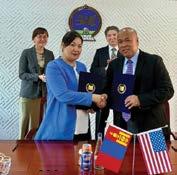
Enforcement Affairs (INL) to provide training and professional development for judges and lawyers worldwide. The first engagement, held in the country of Georgia, included a fiveday Train the Trainer Basic Jury Trial Skills course taught by Chief Judge Gilbert M. Roman, Colorado Court of Appeals. This partnership opens doors to support international law enforcement, justice sector reform, and anticrime initiatives.
The NJC was also invited to attend the Conference of Chief Justices of Asia and the Pacific in Kuala Lumpur, Malaysia, fostering new relationships and future collaborations.
The fourth annual Judicial Renaissance program was held in Portugal in October, in collaboration with the Centro de Estudos Judiciários.
This unique educational experience is designed to deepen our collective understanding of justice, weaving it into the rich tapestry of human cultural accomplishments. This year, the theme of ‘identity’ was threaded into the very fabric of Judicial Renaissance.
Sessions included:
• Constitutions and National Identity
• The Identity of a Citizen-Soldier – What Makes It Unique?
• The Inquisition: Examining the History of Jews in Portugal, Its Reflections in Current Worldwide Antisemitism, and Its Impact on Justice
• The Green Book: When, Where & How You Enter - A Matter of Cultural Identity
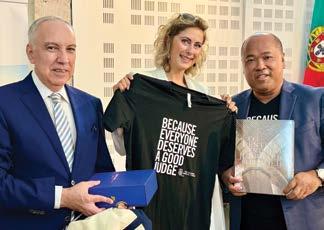
• How AI is Transforming Courts and Ports Law, and
• Evolution - RevolutionConstitution Impact of Art in Inspiring Social Change.
Previous Judicial Renaissances have been held in Bordeaux, France; Seoul, South Korea; and Athens, Greece.
In joining the Judicial Renaissance course, judges are not merely expanding their legal expertise; they are embarking on a quest to
broaden their horizons and deepen their understanding of the human condition. It’s an invitation to be part of a community that values lifelong learning and to contribute to a dialogue that elevates the administration of justice to its noblest form. This course isn’t just an education; it’s an inspiration—a chance to engage with the big ideas revolutionizing our world and to reaffirm one’s vocation to serve the timeless cause of justice.

“ It never fails to surprise me how much it matters to just hear people tell their stories. Parties frequently thank me for listening. I have done nothing out of the ordinary, but their hearing may have been the first and only opportunity to tell me their perspective. Part of the value of this role is providing that service to the parties, and that seems to make a difference for them regardless of the outcome.”
Judge Alexis Rowe, Iowa Department of Inspections, Appeals
& Licensing, NJC Course Attendee

Commissioner
Peter W. Singer
San Diego Superior Court
Elected: 2015
Cour se: Civil Mediation, Fall 2024
Scholarship: Ernest John Watts Scholarship
The College acknowledges the following alumni, faculty, staff, and friends for their generous contributions received during 2024.
($100,000)
State of Nevada
Walmart Foundation
William Randolph Hearst Foundation
($10,000-$14,999)
Hon. Bobbe J. Bridge (Ret.)
Jonathan Bridge, Esq.
Robert “Rob” Hunter, Esq.
Lexy Lionel
Deron Marquez, Ph.D.
William H. Neukom, Esq.
Paul, Weiss, Rifkind, Wharton & Garrison LLP
Robert Parks, Esq.
Quarles & Brady LLP
Robins Kaplan LLP Charitable Foundation
Joan Robinson
I am a longtime faculty member for CJER, California’s state judicial education system. The Civil Mediation course was my first exposure to NJC and I am very impressed with the quality of the education provided, the experience and expertise of the instructors, and the diverse mix of students. I would absolutely recommend the training I received to other judges. I believe it is equivalent or better than competing programs that cost substantially more.”
($50,000-$99,999)
International Academy of Trial
Lawyers Foundation
Peter Chase Neumann, Esq.
Trusted Elections
($25,000-$49,999)
E.L. Cord Foundation
A. Clifford Edwards, Esq.
Mario J. Gabelli
Gabelli Foundation
John Holcomb, Esq.
The Kaul Foundation
Thomson Reuters
($15,000-$24,999)
Helen Roberti Charitable Trust
SC Bar Foundation
($5,000$9,999)
Mary E. Alexander, Esq.
American Bar Association
American Board of Trial Advocates
American Board of Trial Advocates, Tampa Chapter
Hon. Don Ash
Lydia I. Beebe, Esq.
Edward Blumberg, Esq.
BNY Mellon Wealth Management
Alan R. Brayton, Esq.
Elizabeth J. Cabraser, Esq.
Doris Cheng, Esq.
Deutsch Blumberg & Caballero, P.A.
EQT Foundation
Flaschner Judicial Institute
Hon. Sophia H. Hall
Hon. Leslie Hayashi (Ret.)
Maryland State Bar Foundation
Montgomery County Bar Association
Peter Neeson, Esq.
Dale K. Raggio
Prof. Sarah Redfield
Roman Silberfeld, Esq.
Signature Resolution
Hon. Samuel A. Thumma
Walkup Melodia Kelly & Schoenberger
Jason Wilson, Esq.
Wynn Resorts
CIRCLE ($2,500$4,999)
Hon. Marcine S. Anderson
Hon. Mary-Margaret Anderson (Ret.)
Marybel Batjer
Susan H. Briggs, Esq. Choate, Hall & Stewart LLP
Ahmed Davis, Esq.
Randall Ebner, Esq.
Fish & Richardson P.C.
Rew Goodenow, Esq.
Prof. Ronald R. Hofer and Kathleen Gray
Loida Lewis, Esq.
Hon. Robert E. McBeth (Ret.)
National Interdisciplinary
Cannabis Symposium, LLC
Parsons Behle & Latimer
Paul, Weiss, Rifkind, Wharton & Garrison LLP
Resolute Systems, LLC
Darcee S. Siegel, Esq.
Strategic Probability Partners
Mark Tratos, Esq.
CIRCLE ($1,000$2,499)
Hon. Benes Z. Aldana (Ret.)
Brandon Barkhuff, Esq.
Norma Barnes-Euresti, Esq.
Kenneth J. Bolen
Boston Bar Association
Lamise Carano
Hon. Megan Christopher
$1,148,467 raised
707 gifts
$1,250 avg. gift
1,200 scholarships awarded $510,000+ in scholarships
Tom Cottingham, Esq.
Hon. Michael Lawrence Douglas (Ret.)
Hon. Robert H. Edmunds
Filipino American Lawyers of Orange County-Nathaniel Epstein, Esq.
John Frankovich, Esq.
Ann Thornton Field, Esq.
Kathleen H. Hatfield, Esq.
Kim Hogrefe, Esq.
Hon. Gregory Holiday
The Reginald F. Lewis Foundation Inc.
The National Conference of Bar Presidents
Hon. Rory Olsen (Ret.)
Quintarios, Prieto, Wood & Boyer, P.A.
Hon. Teresa P. Rankin (Ret.)
James T. Richardson, Ph. D.
Alice Richmond, Esq.
Hon. James D. Rogers (Ret.)
Philip G. Satre, Esq.
Matt J. Sweeney, Esq.
Jonathan and Carolyn Vitriol
Family Donor Advised FundJoseph Vitriol, Ph. D.
Anthony and Natalie Lising Wang
($500-$999)
Hon. Eric Aarseth
Hon. Richard Armitage
Hon. Patrick B. Augustine
Douglas R. Beam, Esq.
Hon. Kimberly Carlton Bonner
Ginger Busby, Esq.
Hon. Pamela Cousins
John C. Cruden, Esq.
Hon. Herbert B. Dixon Jr.
Hon. David J. Dreyer (Ret.)
Hon. David Fenster
Patrick and Janice Flanagan
Hon. Veronica Galvan
Hon. Cheryl Gonzales
Hon. Calvin D. Hawkins
Hon. Stephen R. Henley
Kay Hodge, Esq.
Hon. Donald D. Hopwood
Hon. Gilbert V. Indeglia (Ret.)
Eileen Letts, Esq.
Hon. Cynthia C. Lu
Joy Lyngar, Esq.
Hon. Julian Mann III (Ret.)
Hon. James G. Martin III
Hon. J. Matthew Martin (Ret.)
Massachusetts Bar Association
Massachusetts Judges Conference-Dr. Robert Clayman
Nevada Humanities
Nevada Power Company
Col. Tara A. Osborn (Ret.)
Hon. Carl W. Ossmann
Hon. Earl G. Penrod (Ret.)
Susan Robinson
Lauri Ross, Esq.
Ann Silver, Esq.
Hon. Elizabeth A. Starrs
Hon. David R. Sweat (Ret.)
Henry Valenzuela, Esq.
Hon. Rick W. Varner
Hon. David L. Welch (Ret.)
Gordon I. Zimmerman, Ph.D.
($250-$499)
Hon. Neil E. Axel
Hon. Joe E. Basenberg
Hon. James M. Batzer (Ret.)
Mark Bruce, Esq.
Hon. Walter J. Brudzinski
Mary Burdick
Hon. Janet Burnside
Hon. Tani Cantil-Sakauye (Ret.)
Hon. William C. Carpenter Jr.
Hon. Michael J. Cassidy
Hon. Jess B. Clanton, Jr. (Ret.)
Hon. Toni E. Clarke (Ret.)
Hon. William Cobb (Ret.)
Crystal Cochren, Esq.
Hon. William S. Colwell
Hon. Robert S. Cohen
Hon. Melissa G. Crowell
Hon. Michael J. Devine
Hon. William Dressel (Ret.)
Chrystn Eads, Esq.
Hon. Peter Estrada
Hon. Charles Ervin
Frank J. Fahrenkopf, Esq.
Hon. Jane D. Fishman (Ret.)
Kerry Flanagan
Hon. Susan L. Formaker
Hon. Idee C. Fox
Robert J. Gabrielli
Hon. David M. Gersten (Ret.)
Hon. George N. Hardesty Jr.
Edwin A. Harnden, Esq.
Robert (Buzz) Hines, Esq.
Hon. James Hudson
Paul Lamboley, Esq.
Hon. Thomas J. Lanphear
Hon. Paul G. Levy (Ret.)
David Louie, Esq.
Judicial Arbiter Group, Inc. -
Hon. William G. Meyer
Hon. Robert Montgomery Jr.
Hon. Leslie C. Nichols
Hon. Melvin Oden-Orr
Hon. Steven D. Olmstead
Hon. Roxanne Ong
Hon. Tracie R Porter
Hon. Caryl Penney Privett
Hon. Paul L. Reiber
Gareth W. Rosenau, Esq.
Hon. Phillip Sinclair
Paul Sun, Esq.
Hon. David Thomson
Hon. John E. Thorson
Hon. Robert J. Torres, Jr.
Hon. Jonah I. Triebwasser
Konstantina Vagenas, Esq.
Hon. George D. Varoutsos
Hon. Lisa Walsh
Hon. Roger C. Wesley
Hon. Elliot L. Zide (Ret.)
($125-$249)
Hon. Valerie Ali
Hon. Lesley Allan (Ret.)
Hon. Deborah B. Barnes
Hon. Carrie Bland
Hon. G. Paul Bollwerk III
Hon. Harrison Braxton, Jr. (Ret.)
Hon. Paula M. Carey (Ret.)
Hon. J. Michelle Childs
Edward Cohen
Hon. Kelly Easton
Hon. Andrew Effron
Hon. Jennifer Gee (Ret.)
Hon. Brendette Brown Green
Hon. Karl B. Grube
Hon. David Hermerding
Barbara Howard, Esq.
Hon. Beth Faber Jacobs (Ret.)
Hon. Howard A. Kalfus
Hon. Michael Kilroy
Barbara Lerman, Esq.
Hon. Violet A.P. Lui-Frank
Hon. Evan McGinley
Martha L. Martin, Esq.
Hon. Lewis M. Nixon
Hon. Ronald Boyd Robie
Hon. Frederic B. Rodgers
Patricia Ruffolo
Hon. Robert Lee Steinberg
Hon. Angela R. Taylor
Hon. Lynn Tepper (Ret.)
Hon. Lisa S. Van Amburg (Ret.)
Peter Van Zandt, Esq.
Hon. Nycole Watson
Hon. G. Michael Witte (Ret.)
Hon. William Z. Wood, Jr.
GAVEL CIRCLE
(UP TO $124)
Hon. George H. Allen (Ret.)
Hon. David A. Anderson
Hon. Veronica Armouti
Hon. Marjorie Arrington
Hon. Anthony J. Baratta
Hon. Keith Bell
Judge Anna Marie Anzalone
Michigan Circuit Court Judge, Lenawee County
Appointed: 2014
Course: W hen Justice Fails, Fall 2024
Scholar ship: Weatherwax Foundation Scholarship
“
This
was by far the best course I have ever taken. When I attend other CLE trainings in my State, I usually glean nuggets of information, but this course was amazing. I learned so much and it expanded my mind and outlook. My biggest takeaway was how important the bench is in the face of adversity and political change.”
Judge Genesis Draper
Harris County Texas Criminal Court
Elected: 2019
Course: When Justice Fails, Fall 2024
Scholar ship: Honorable B.B. and Estella J. Schraub Scholarship Fund
Hon. Julie Bernard
Harmeetpal Singh Bhullar
Hon. Gail Bohr
Hon. William L. Boulden
Alf W. Brandt, Esq.
Hon. Robert Broughton
Sen. Richard Bryan, Esq.
Sheena Britschgi
Karyn Bucur, Esq.
Hon. Bonnie Bulla
Hon. Paul M. Burch
Hon. Kevin S. Burke
Hon. Andrew Butler
Agnes C. Butterfield
Hon. Louis K. Campbell (Ret.)
Hon. John P. Capuzzi Sr
Hon. William H. Carver
Hon. Emily Chafa
Hon. Pamela Chen
“
The interactive nature of When Justice Fails facilitated an in-depth study of the judiciary and our work that I have not experienced in other conferences. The historical context of the role of the judiciary during the Civil Rights Movement and the Holocaust was helpful in analyzing current challenges that the judiciary faces, and allowed a unique opportunity to evaluate our work with the benefit of hindsight. It was an excellent conference.”
Hon. Michael J. Chmiel
Hon. Jess B. Clanton Jr. (Ret.)
Hon. Denis Cohen
Hon. Frederick C. Cohen (Ret.)
Lynn Julia Pendelbury Colby
Hon. Leeland Cole-Chu
Hon. Thomas A. Connors
Harriet E. Cummings, Esq.
Lynn E. Daugherty
Hon. David Deakin
Hon. Elizabeth Dewar
Anthony DiPofi
Prof. Shari S. Diamond
Hon. Sandra Donaghy
Hon. Bernice Donald (Ret.)
Hon. Rodger Drew
Hon. Barbara K. Finley (Ret.)
Ivan and Sharon Fong
Hon. Robert Foster
Hon. Thomas E. Fowler
Hon. Bruce Fox
Hon. Janet Frangie
Lisa Fuller, Ph.D.
Hon. John E. Galt
Jonathan Gegaj
Armen Gegamian
Theodore O. Gest
Daniel F. Gourash, Esq.
Dennis A. Gorman
Hon. Kenneth L. Govendo (Ret.)
Hon. Charles R. Greenacre
Hon. Donovan Greening (Ret.)
Hon. Margaret Guzman
Hon. Andrew J. Hairston (Ret.)
Hon. Glenn and Janet Hara
Hon. Kathryn Hand
Hon. John J. and Carolyn M.
Haney
Dr. Paul A. Hanle
Hon. Katherine L. Hansen
Col. Rodger C. Harris (Ret.)
Annalie Harvey
Hon. Joe L. Hegel (Ret.)
William S. Hein & Co, Inc.
Hon. Donna Henderson
James Hobi, Esq.
Hon. Teresa Hoskins-Hart
Hon. Janice Howe
Hon. William Hughes
Darryl Jackson
Hon. Donald R. Johnson
Hon. Elsa Jones
Hon. Mark Juhas
Hon. Angel Kelley
Hon. David Kelley
Hon. David S. Keenan
Dimitrios Kyriakou, Ph. D.
Hon. George Lee
Hon. M. Lauren Lemmon
Barbara Lerman, Esq.
Hon. Melissa Long
Elizabeth Loureiro
Hon. Patricia Lynch
Barry Mahoney Ph.D.
Hon. Juergen Maruhn
Hon. Paul J. Mason
Hon. Allen May Jr.
Christine McDermott, Ph. D.
Hon. W. Kearse McGill
Hon. Sabrina McKenna
Barbara R. McLauchlin
Hon. Lawrence McLellan
Hon. Emily Morales-Minerva
Hon. William F. Morgan (Ret.)
Elizabeth Morgan-Beesley
Neuyareli Navarro
Erin O’Brien, Esq.
Hon. Steven J. Oeth
Hon. Brian M. O’Leary (Ret.)
Hon. Reba Ann Page
Hon. Kevin Parker
Mr. Steven F. Pflaum Esq
Hon. Rachel Pickering
Hon. Haskell and Kay M. Pitluck
Aiyana Pitts
Hon. Thomas Potter
Esperanza Pretila
Allen Reel, Esq.
Professor Henry R. Reeve
Hon. Elisabeth S. Reynoldson
Hon. Kristin L. Rosi
Pam Russell
Hon. John Russo
Hon. Larry Guy Sage (Ret.)
Hon. Janet Sanders
Hon. Teresa M. Sarmina
Hon. Kitty Schild
Hon. Thomas Schulz
Gregg Schwitzgebel, Esq.
Karim Sidibe, Esq.
Hon. John Siqueiros
Smith Law Firm
Hon. Tyler Smith
Maryland Soyett
Dr. Philip M. Stahl
Hon. Gloria Sturman
Hon. Troy Taira
Hon. Gloria Tan
Hon. Eric R. Thiessen
Hon. Theresa C. Timlin
Hon. Adam E. Torem
Hon. Gita Vahid-Tehrani
Hon. Brian VanDenzen
Hon. Lillian Wan
Hon. Julia B. Weatherly
Prof. Penny J. White
Tami White
Hon. Gayle Williams-Byers
Hon. Cindy L. Wilson
Hon. Kevin Wilson
Hon. William H. Wolff, Jr. (Ret.)
Hon. William D. Yarborough
Hon. Michael A. Youngpeter
Hon. Brent Adams (Ret.)
Agnes C. Butterfield
Hon. Lorenzo Arredondo (Ret.)
Hon. Calvin D. Hawkins
Hon. Cameron Batjer
Hon. Richard L. Armitage
Marybel Batjer
Hon. Robert T.S. Colby (Ret.)
Lynn Julia Pendelbury Colby
John Squire Drendel, Esq.
Marybel Batjer
Hon. N. Patrick Flanagan III
Kerry Flanagan
Patrick and Janice Flanagan
Hon. Arthur A. Gladstone
Kenneth J. Bolen
Jeanne T. Hairston
Hon. Andrew Hairston (Ret.)
Hon. Paul G. and Dorothy A. Hatfield
Kathleen Hatfield, Esq.
Susan Robinson
Hon. Peggy Fulton Hora
Hon. Robert L. Broughton
Hon. William G. Meyer
Judicial Arbiter Group, Inc.
Samuel Lionel, Esq.
Lexy Lionel
Hon. Philip B. McLauchlin, Jr.
Barbara R. McLauchlin
Wm. T. (Bill) Robinson III
Joan Robinson
Hon. G. Michael Witte (Ret.)
Senator William Raggio
Dale Raggio
Gabriel Rodgers
Hon. Frederick C. Rodgers (Ret.)
Edward Silver, Esq.
Ann Silver, Esq.
Hon. Mary-Margaret Anderson (Ret.)
Patricia Ruffolo
Hon. Kathie E. Davidson
Barbara Lerman, Esq.
John Holcomb, Esq.
American Board of Trial
Advocates, Dallas Chapter
American Board of Trial
Advocates, Tampa Chapter
BNY Mellon Wealth
Management
Craig Sutherland-Strategic Probability Partners
Hon. Alli B. Majeed (Ret.)
Douglas R. Beam, Esq.
Hon. Daniel Sleet
Henry Valenzuela, Esq.
Hon. David S. Tatel (Ret.)
John C. Cruden, Esq.
Hon. Don and Rita Ash Scholarship Endowment Fund
Barco-Duratz Judicial Continuing Education Fund
Hon. Cameron Batjer Scholarship Fund
Walter H. Beckham, Jr., Esq. Beckham Scholarship
Hon. Janet J. Berry Endowment
Hon. Toni T. Boone Endowment Fund
The Bretzlaff Foundation Scholarship Fund
Ben Caramella Judicial Scholarship Fund
Henry Crown Memorial Scholarship Fund
William F. Dressel Scholarship Fund
W. Howard Gray and Jeanne F. Gray Coombs Memorial Scholarship Fund
Hon. Patrick Flanagan International Judicial Scholarship Fund
Chief Justice William A. Grimes
Criminal Outline Fund
Hon. Sophia Hall Scholarship Endowment
William Randolph Hearst Endowment
Hon. Peggy Fulton Hora
Scholarship Endowment Fund
Judicial Studies Graduate Degree Scholarship Endowment Fund
W. K. Kellogg Academic Enhancement Fund
The Carolyn Lamm and Judge Eugene Hamilton Endowed Scholarship Fund
Charles Matthews Fund
Nevada Judicial Education Scholarships
Hon. V. Robert Payant Endowment
Michael Pope Fund
The Senator William J. Raggio Endowment Fund
The Wm. T. (Bill) Robinson III Scholarship Endowment
The Judge Daniel P. Ryan Endowment Fund
Honorable Chad C. Schmucker Endowment Fund
Honorable B.B. and Estella J.
The NaTioNal Judicial college
Schraub Scholarship Fund
Silver State Schools Credit Union Scholarship Endowment
Sinatra Endowment Fund
Hon. Steve Smith Endowment Fund
South Carolina Circuit Court Judges Scholarship Fund
Judge Ernst John Watts Endowment
Louis Weiner, Jr., Endowed Scholarship Fund
Hon. Karen Adam
Hon. John Alsbrooks
Hon. Efrain Alvarado
Hon. Robert Anchondo
Hon. Jamie Anderson
Kofi Appiah-Okyere, Ph.D.
Amy Arias, Ph.D.
Hon. Neil Axel
Hon. Robert Bacharach
Hon. Anthony J. Baratta
Richard S. Barnes, CPA
Hon. Curtis Bell
Hon. Scott Bernstein
Prof. Michael Blasie
Hon. Toni T. Boone
Hon. Benjamin Bowden
Kevin Bowling, JD
Hon. Timothy Brauer
Mark Broadhead, MD
Ann Burroughs
Prof. Robert S. Chang
Hon. Thomas E. Cheffins
Hon. Augustus Chin
Hon. Randy Clapp
Hon. Sherri Collins
Hon. Thomas Conley
Hon. Daniel J. Crothers
John Cruden. Esq.
Carl Dawson, M.S.
Adam Dodge
Hon. W. Scott Donaldson
Hon. William F. Dressel
Hon. Peter Evans
Jake Faleschini
James Farley
Hon. Roy Ferguson
Steve Fields
Hon. Elizabeth Figueroa
Shireen Fisher
Hon. Kevin Fitzwater
Hon. Susan Formaker
Hon. Thomas Fowler
Ernest C. Friesen, Jr.
David J. Gavito
Hon. Jennifer Gee
Hon. Serge Georges
Hon. David Gersten (Ret.)
Hon. W. Michael Gillette
Andrew Granata
Nancy Griswold
Adam “Sean” Hankins
Prof. Jennifer Harder
Jennifer Harmon
Hon. Kristi Harrington
Hon. David Neil Harris
Hon. A. Robinson Hassell
Travis Herbert
Barry Hill, Esq.
Hon. Ilona Holmes
Hon. Charles Hoskin
Hon. Mary Huffman
Satsuki Ina
Michael Ishii
Hon. Melissa Jones
Hon. Mark Juhas
Hon. Daniel Jurkowitz
Hon. Ken Kawaichi
Hon. William Kelly
Hon. David Kimberley
Hon. Janet Kinter
Saralinda Kiser, M.A.
Hon. Stephen N. Knights
Karen Korematsu
Hon. Phyllis Kotey
John M. Lacey, CPA, PhD
Judge Benjamin J. Nevius
Pennsylvania Court of Common Pleas, Berks County
Elected: 2017
Cour se: Drugs in America, Summer 2024
Scholarship: Hon. Janet J. Berry Endowment
“
There is not a division of the court unaffected by alcohol and drug dependency. We have seen its destructive effect not only on litigants, but also on practitioners and even our colleagues on the bench. I hesitate to offer a colloquial response, but Drugs in America offers a “firehose” approach to learning, particularly with regard to the cellular level mechanics of various abused substances. You don’t know what you don’t know, and this course revealed how little I knew about the science of addiction, despite having presided in matters in divisions of the court most affected, including dependency, custody, drug/treatment, and domestic abuse.”
Court of Appeals of Georgia
Elected: 2010
Cour se: Advanced Judicial Writing, 2024
Scholarship: Chief Justice William A. Grimes Criminal Outline Fund
Mark Lanterman
Hon. Gary Larance
Hon. M. Lauren Lemmon
Hon. Patricia Lenzi
Hon. Grady Leupold
Hon. Katherine Kwan
MacDonald
Hon. Alli B. Majeed (Ret.)
Prof. Kenneth Manaster
Hon. J. Matthew Martin
Hon. Janice Martin
Michael Mastrandrea
Hon. Robert McBeth
Hon. Robert McCune
Hon. Kim McGinnis
Hon. Sabrina McKenna
Amy Miles
Hon. John Molaison
Hon. Bruce Moore
“
It was an excellent writing program.
I’ve
attended other fine writing programs. This one stands out for its depth, for the variety of perspectives offered, and for the quality of feedback provided.”
Hon. Michael R. Morgan
Hon. Jack Nevin
Hon. Steven Olmstead
Jon Osaki
Hon. Tara Osborn
Jeff Payne
Matthew Payne
Hon. Reba Page
Melisssa Piasecki, M.D.
Stephen J. Rapp
Hon. Mark Recktenwald
Hon. James Redwine
Prof. Alison Renteln
Hon. Victor Reyes
Kenneth Robinson, Ed.D
Heather L. Rosing, Esq.
Cristina Sanchez
Selma Sauls
Hon. Barbara Seelbach
Hon. Daniel Shanes
Wendy Shiba, Esq.
Hon. Gregory D. Smith
Hon. Steve L. Smith
Hon. James Snyder
Hon. Connie J. Steinheimer
Bryan Stevenson, Esq.
Hon. Phillip Straniere
Carl Takei, Esq.
Don Tamaki, Esq.
Sandra Thiam, Esq.
Hon. Samuel Thumma
Hon. Allan A. Toubman
Prof. Lauren Van Schilfgaarde
Hon. Rick Varner
Hon. Edward Wahl
Hon. Lisa Walsh
Hon. Brian Watkins
Hon. Laura Weiser
Hon. Steven A. Wise
Hon. Lisa Woodruff-White
Hon. Merideth Wright
Hon. Erica Yew
Hon. Thomas Zonay
Mark L. Zyla, CPA
Robert Hunter, Esq. Chair
Hon. Mary-Margaret Anderson (Ret.)
Chair-Elect
Darcee S. Siegel, Esq.Treasurer
Hon. Leslie A. Hayashi (Ret.)
Secretary
Edward Blumberg, Esq. Immediate Past Chair
Brandon Barkhuff, Esq.
Susan Briggs, Esq.
Hon. Tani Cantil-Sakauye (Ret.)
A. Cliff Edwards, Esq.
Hon. Aaron Ford
Loida N. Lewis, Esq.
Eileen Letts, Esq.
Hon. Danette Mincey
Robert L. ‘Bob’ Parks, Esq.
Hon. Samuel A. Thumma
Angelina Tsu, Esq.
LIAISONS
ABA Judicial Division: Hon. Robert Edmunds (Ret.)
Faculty Council:
Hon. Phyllis Kotey
Board of Visitors:
John L. Holcomb, Esq. and Roman Silberfeld, Esq.
Mark Tratos, Esq.
Marybel Batjer, Esq.
Hon. Janet Berry (Ret.)
Al Brayton, Esq.
Lydia Bybee, Esq.
Hon., Toni Clarke (Ret.)
Ann Thornton Field, Esq.
Hon. Sophia Hall
Kim Hogrefe, Esq.
Hon. J. Matt Martin
Peter Neeson, Esq.
Bill Neuko, Esq.
Phil Satre, Esq.
Matt Sweeney, Esq.
John L. Holcomb, Esq, Co-Chair
Roman Silberfeld. Esq. Co-Chair
Mary Alexander, Esq.
Hon. Bobbe Bridge (Ret.)
Jon Bridge, Esq.
Mark Bruce, Esq.
Elizabeth J. Cabraser, Esq.
Doris Cheng, Esq.
Ahmed Davis, Esq.
Rew Goodenow, Esq.
Hon. Sophia H. Hall
Elizabeth Green Lindsey, Esq.
Tobias Millrod, Esq.
Marsha Rabiteau, Esq.
Joseph M. Racicot, Esq.
Ricky Raven, Esq.
Hon. James D. Rogers (Ret.)
Elise Sanguinetti, Esq.
Hon. Suzanne Segal (Ret.)
Dick A. Semerdjian, Esq.
Ann Silver, Esq.
Jason Wilson, Esq.
TRUSTEES LIAISON
A. Cliff Edwards, Esq.
Hon. Phyllis Williams Kotey (Ret.)
Chair
Hon. Neil Edward Axel
Immediate Past-Chair
Hon. Thomas E. Cheffins
Hon. Ilona M. Holmes (Ret.)
Hon. Melissa Lin Jones
Hon. James McCune
Hon. John J. Molaison, Jr.
Hon. Steve Smith
Hon. Edward Wahl
Hon. Thomas Z. Zonay
TRUSTEE LIAISON
Susan Briggs, Esq.
Hon. Lisa Atkinson
Hon. Michelle Brown-Yazzie
Hon. Charles Cloud (Ret.)
Hon. Ingrid Cumberlidge
Hon. Lisa Dickinson
Heather Kendall-Miller, Esq.
Hon. Vincent Knight, Sr. (Ret.)
Colleen Lamarre, Esq.
Hon. Gary LaRance
Justice Stacy Leeds
Mike McBride III, Esq.
Sandra McCandless, Esq.
Hon. David Raasch
Hon. Fawn Sharp
Hilary Tompkins, Esq.
Hon. Ron Whitener
Hon. Robert Williams
Hon. Robert Yazzie
Charles Zeh, Esq.
TRUSTEE LIAISON
Here’s how to make a gift that will benefit you now and support the College for all time.
The National Judicial College has played a key role in educating judges since 1963. Through your will, a charitable remainder or life trust, or by naming the NJC as the beneficiary of your life insurance or IRA, you can help the NJC continue to provide judges with the knowledge, skills and abilities vital for their role on the bench.
Here are the most popular Planned Giving options:
Trusts, Wills and Bequests
Leave the NJC a dollar amount or a percentage of your estate. Reduce your estate tax base by the full amount of the gift.
Life Insurance Policies
Name the NJC as a beneficiary for the whole or part of a life insurance policy that is prepaid but is no longer needed by your family.
Retirement Plans
Name the NJC as a beneficiary to all or part of your IRA and your gift will pass tax free.
Charitable Remainder Trusts
Place cash or property worth $100,000 or more into a trust to provide you with income for life or a term of years. The remainder will be distributed to the NJC.
Charitable Lead Trusts
Place cash or property in a trust that pays a fixed amount to the NJC for a term of years. Upon the completion of the term, the assets transfer to the NJC.
Certificate of Deposit or Other Security
If there are judicial causes you care about, we can help you have a positive impact by making a planned gift to support NJC course development in a specific area of the law. Choose from topics such as Administrative Law, Appellate Law, General Jurisdiction, Military, Special Court or Tribal.
If you prefer to provide scholarship assistance, with a minimum gift of $50,000 you can endow a scholarship in your name, the name
of a loved one, or of a colleague. A scholarship endowment of $50,000 will generate proceeds to bring judges to a course for decades to come.
Legacy Council The NJC Legacy Council is a growing group of judges, attorneys and friends who have included the NJC in their estate plans. If you have already named us as a beneficiary of a planned gift, please let us know by filling out the “Planned Giving Statement of Intent” form available at the NJC website, Judges.org (Donate > Legacy Giving), so we may enroll you as a Legacy Council Member.
Contact our Advancement Department at njcdevelopment@judges.org for more details.
Judge Bevra Jacobson
Confederated Salish And Kootenai Tribes - Tribal Court
Elected: 2024
Cour se: General Jurisdiction, 2024
Scholarship: Roberti Charity Trust –Tribal Scholarship, Donald W. Reynolds Scholarship, and William F Dressel Scholarship
“
– I recommend and encourage new judges to attend the General Jurisdiction session, or any of the courses offered by the National Judicial College. Gen Jur offered a comprehensive overview of what I could expect to face on the bench — and how to handle it. I felt like the course provided a solid foundation for my new appointment to the judiciary.”
Judge Mickey Benally
Whie Mountain Tribal Court
Appointed: 2020
Cour se: Artificial Intelligence, 2024
Scholar ship: W. Howard Gray and Jeanne F. Gray Coombs Memorial Scholarship Fund
Susan Briggs, Esq.
Roman Silberfeld, Esq. Co-Chair
Kelly-Ann Fayette Clark, Esq. Co-Chair
Alan Bryan, Esq.
Cyndie Chang, Esq.
Angeline Chen, Esq.
Mark Clouatre, Esq.
John Cruden, Esq.
Pankit Doshi, Esq.
Courtney Camp Enloe, Esq.
Daniel Gourash, Esq.
Donna Haddad, Esq.
Scott Hayden, Esq.
Jennifer Hilsabeck, Esq.
Robert “Buzz” Hines, Esq.
Being introduced to AI, what it is, and what it can do was the biggest takeaway. Before the course, I had only a rudimentary understanding of AI. I was most concerned about people utilizing fakes in the courtroom so being able to keep pace with the development was very important to me.”
Kay Hodge, Esq.
Helen Kim, Esq.
Joe Lee, Esq.
Mark O’Halloran, Esq.
Jennifer Parent, Esq.
Odette Polintan, Esq.
Jody Porter, Esq.
G. William Shaw, Esq.
Vince Verde, Esq.
Richard D. Williamson, Esq.
Stephen Wu, Esq.
TRUSTEE LIAISON
Brandon Barkhuff, Esq.
Judge David J. Dreyer (Ret.)
Co-Chair
Hon. Alli B. Majeed (Ret.)
Co-Chair
Hon. Veronica Alicea-Galvan
Hon. Brian J. Amero
Hon. Kimberley Carlton Bonner (Ret.)
Hon. Ben Burgess (Ret.)
Hon. Suzette Carlisle Flowers
Hon. Mary E. Chicchelly
Hon. Thomas C. Clark II
Hon. Gary L. Clingman (Ret.)
Hon. Robert S. Cohen
Hon. Scott A. Collier
Hon. Melissa G. Crowell (Ret.)
Hon. William Dressel (Ret.)
Hon. Elizabeth D. Figueroa
Hon. Thomas E. Fowler
Hon. Greg G. Guidry
Hon. Kristi L. Harrington (Ret.)
Hon. David N. Harris
Hon. Donald R. Johnson
Hon. Mark A. Juhas
Hon. Howard A. Kalfus
Hon. David S. Keenan
Hon. Rory R. Olsen (Ret.)
Hon. James M. Redwine (Ret.)
Hon. Larry Sage
Hon. Jonah Triebwasser
Hon. Rick W. Varner
Hon. Michael P. Villani
Hon. Edward T. Wahl
Hon. Carrie A. Zepeda
TRUSTEE LIAISON
Hon. Tani Cantil-Sakauye (Ret.)
NJC CORPORATION
2024 ABA Board of Governors
Appellate Judges
Education Institute
Dividing the Waters
AWARD ADVISORY COMMITTEE
Angelina Tsu, Esq.
Hon. Benes Z. Aldana (Ret.)
Hon. Bobbe Bridge (Ret.)
Hon. Mary Chicchelly
Ivan Fong, Esq.
Prof. Deborah Jones Merritt
JUSTICE RUTH BADER
GINSBURG LECTURE ADVISORY COMMITTEE
Mary Alexander, Esq.
Mark Bruce, Esq.
Hon. Leslie Hayashi (Ret.)
Darcee Siegel, Esq.
American Academy of Addiction Psychiatry
American Association for Justice
American Bar Association
ABA Commission on Lawyer Assistance Programs (CoLAP)
ABA Judicial Division
ABA Rule of Law Initiative
ABA Section of Litigation
ABA Tort Trial and Insurance Practice Section
American Board of Trial Advocates
American College of Trial Lawyers
American Institute of Certified Public Accountants
American Judges Association
Appellate Judges Education Institute
Arkansas Administrative Office of the Courts
Association of Defense Trial Attorneys
Blackfeet Nation
Boys and Girls Club of Elko County
Boys and Girls Club of Truckee Meadows
Brennan Center for Justice
Bureau of Indian Affairs
California Association of Youth Courts
Center for Court Innovation
Center for Health and Justice at TASC Inc.
Center for Human Trafficking
Center for Judicial Education and Research
Center for Public Policy Studies
Center for Statistics and Applications in Forensic Evidence (CSAFE)
Central Panel Directors
Children’s Cabinet
Conference of Chief Justices Conference of State Court Administrators
Civilian Board of Contract Appeals
Connecticut Bar Association
Council of State Governments
DEI Collaborative
Dividing the Waters
DRI — The Voice of the Defense Bar
Environmental Law Institute
Equal Justice Initiative
The Frank M. Johnson Institute
Federal Bar Association
Federal Court of Australia
Flaschner Judicial Institute
Florida Department of Highway Safety and Motor Vehicles, Bureau of Administrative Reviews
Foundation for Advancing Alcohol Responsibility
Fred T. Korematsu Center for Law and Equality
The Future Society
Governors Highway Safety Association
H5
Harvard Law School Executive Education
Hispanic National Bar Association Judicial Division
Human Trafficking Court Solutions
Illinois Judicial College
Indiana Judicial Center
Institute for the Advancement of the American Legal System
Institute for Well-Being in Law
IEEE-Institute of Electrical and Electronics Engineers
International Academy of Trial Lawyers
International Association of Defense Counsel
International Association of LGBTQ+ Judges
International Society of Barristers
Jain Family Institute
Judicial Research Institute of the Supreme Court of Korea
Justice Management Institute
Justice Michael Douglas Fellowship
Justice Speakers Institute
Kansas Supreme Court, Office of Judicial Administration
Law School Admission Council
Lexpat Global Services, LLC
Louisiana Division of Administrative Law
Loyola Law School
Minnesota Department of Human Services, Appeals and Regulations Division
Minnesota State Court Administrator’s Office, Judicial Education Division
National Asian Pacific American Bar Association Foundation
National Asian Pacific American Bar Association Judicial Council
National Association for Presiding Judges and Court Executive Officers
National Association of Administrative Law Judiciary
National Association of Drug Court Professionals
National Association of Hearing Officials
National Association of State Judicial Educators
National Association of Women Judges
National Bar Association
National Bar Association Judicial Council
National Center for State Courts
National Conference of Specialized Court Judges
National Conference of Women’s Bar Associations
National Congress of American Indians
National Consortium on Racial and Ethnic Fairness in the Courts
National Council of Juvenile and Family Court Judges
National Indian Child Welfare Association
National Judges Association
National Native American Bar Association
Native Community Development Associates
Nevada Coalition to End Domestic
and Sexual Violence
Nevada Department of Public Safety
Nevada Office of the Attorney General
Nevada White Collar Crime Center
New England Bar Association
New York State Unified Court System Judicial Institute
Ninth Judicial Circuit Historical Society
Northern Nevada International Center
Ozmen Institute for Global Studies
Pacific Judicial Strengthening Initiative
Pretrial Justice Institute
Reno + Sparks Chamber of Commerce
Singapore Judicial College
State of Nevada
Stetson University College of Law
Supreme Court Historical Society
Tennessee Administrative Office of the Courts
Tetra Tech DPK
Thirty-Seven Wines
Thomson Reuters
Tribal Judicial Institute
UNESCO
United States Department of Agriculture, National Appeals Board
University of Nevada, Reno
UNLV William S. Boyd School of Law
UNR Judicial Studies Graduate Degree Program
Wayamo Foundation
Williams Institute at the UCLA School of Law
World Justice Project
Yakama Nation
Like the inspiring quotes on each page? Cut them out! Looking for